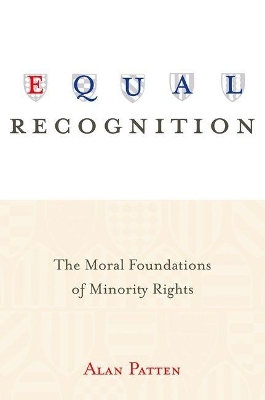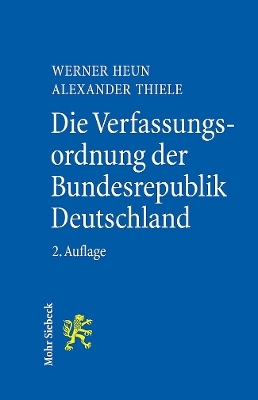
Equal Recognition
Princeton University Press (Verlag)
978-0-691-17355-9 (ISBN)
The book elaborates and applies its core theoretical framework by exploring several important contexts in which minority rights have been considered, including debates about language rights, secession, and immigrant integration. Demonstrating that traditional, nonmulticultural versions of liberalism are unsatisfactory, Equal Recognition will engage readers interested in connections among liberal democracy, nationalism, and current multicultural issues.
Alan Patten is professor of politics at Princeton University. He is the author of Hegel's Idea of Freedom and the editor of the journal Philosophy & Public Affairs.
Preface vii 1. Introduction: Liberalism and the Accommodation of Cultural Diversity 1 1.1. Competing Interpretations of Liberalism 1 1.2. Why the Case for Liberal Culturalism Needs to Be Restated 6 1.3. Four Distinctions, Plus One More 11 1.4. The Main Argument of the Book 27 1.5. Overview 34 2. Rethinking Culture: The Social Lineage Account 38 2.1. The Dilemma of Essentialism 38 2.2. The Critique of Essentialism 40 2.3. Cultural Continuity 45 2.4. The Social Lineage Account 50 2.5. Some Related Concepts 57 2.6. The Normative Significance of Culture: A First Glance 65 3. Why Does Culture Matter? 69 3.1. Options Disadvantage 69 3.2. Culture as Context of Choice 73 3.3. The Access Account 78 3.4. The Adequacy Account 92 3.5. Cultural Preservation versus Fair Treatment of Cultures 102 4. Liberal Neutrality: A Reinterpretation and Defense 104 4.1. An Unfashionable Idea 104 4.2. Neutrality as a Downstream Value 108 4.3. Conceptions of Neutrality 111 4.4. Institutions of Neutrality 119 4.5. The Fairness Justification of Neutrality 123 4.6. The Value of Self-Determination 131 4.7. Fairness and Neutral Treatment 137 5. Equal Recognition 149 5.1. Justice and Cultural Decline: Three Views 149 5.2. Recognition 156 5.3. Recognition and Justice 164 5.4. Equal Recognition versus Liberal Nationalism 171 5.5. The Objection from Expensive Tastes 177 5.6. Is Full Proceduralism Enough? 182 6. Equal Recognition and Language Rights 186 6.1. Linguistic Diversity and Language Rights 186 6.2. Three Kinds of Language Rights 188 6.3. Two Models: Nation Building and Language Preservation 192 6.4. The Equal Recognition Model 196 6.5. The Case for Equal Recognition 201 6.6. The Nation-Building Challenge 205 6.7. The Language Preservation Challenge--Weak Versions 210 6.8. The Language Preservation Challenge--Stronger Versions 216 6.9. Equal Recognition versus the Territoriality Principle 227 7. Democratic Secession from a Multinational State 232 7.1. Theories of Secession 232 7.2. The Failure-of-Recognition Condition 237 7.3. The Equal Recognition of National Identity 242 7.4. The Democracy Argument 256 7.5. The Confederal Alternative 261 7.6. Practical Implications 264 8. Immigrants, National Minorities, and Minority Rights 269 8.1. The Immigrant/National Minority Dichotomy 269 8.2. How Voluntary Is the Decision to Emigrate? 275 8.3. Are Cultural Rights Alienable? 281 8.4. Is the Receiving Society Acting Permissibly? 285 8.5. The Limits of Voluntary Acceptance 294 References 299 Index 311
| Erscheinungsdatum | 18.11.2016 |
|---|---|
| Verlagsort | New Jersey |
| Sprache | englisch |
| Maße | 152 x 235 mm |
| Gewicht | 539 g |
| Themenwelt | Geisteswissenschaften ► Philosophie |
| Sozialwissenschaften ► Politik / Verwaltung ► Politische Theorie | |
| ISBN-10 | 0-691-17355-9 / 0691173559 |
| ISBN-13 | 978-0-691-17355-9 / 9780691173559 |
| Zustand | Neuware |
| Haben Sie eine Frage zum Produkt? |
aus dem Bereich


